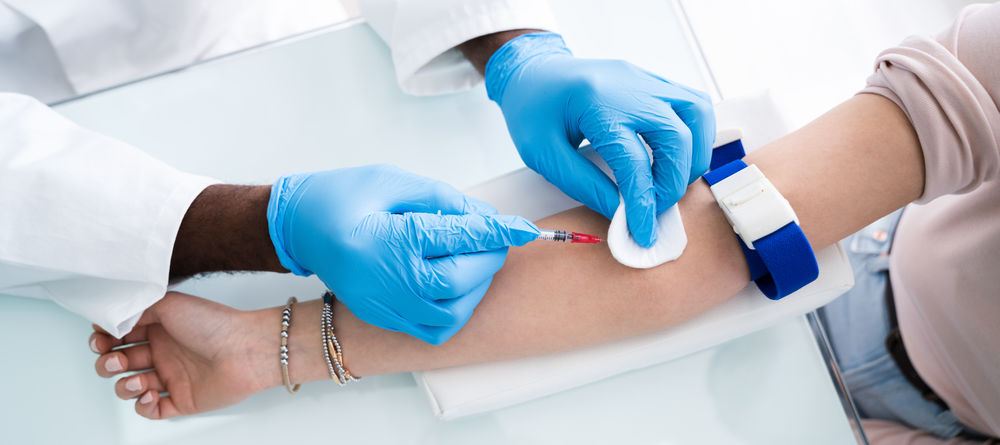
Medical Laboratory Technology
Medical Laboratory Technology (MLT), also known as Medical Laboratory Science (MLS) or Clinical Laboratory Science (CLS), is a healthcare profession that plays a crucial role in the diagnosis, treatment, and prevention of diseases. Medical Laboratory Technologists, also known as medical lab technicians, work behind the scenes in clinical laboratories, conducting various tests on patient samples to provide important data to physicians and other healthcare professionals. Professionals working in this field perform several types of analyses of body fluids like blood, stool, sputum, urine, etc., and work in coordination with Doctors, Physicians, Scientists and Pharmacies.
Role Desciption
Medical Laboratory Technologists play a vital role in the healthcare system by providing accurate and timely laboratory results that aid in the diagnosis and treatment of patients. Their work is critical for patient care, disease monitoring, and medical research.
Sample Analysis: Medical Laboratory Technologists are responsible for collecting, preparing, and analyzing various types of patient specimens, such as blood, urine, tissue, and body fluids. They perform a wide range of diagnostic tests, including blood chemistry, microbiology, hematology, immunology, and molecular biology assays.
Equipment Operation: They operate and maintain complex laboratory equipment and instruments, ensuring accuracy and precision in test results. This includes tasks such as calibrating machines and troubleshooting technical issues.
Quality Control: Technologists are responsible for quality control and quality assurance in the laboratory. They monitor the accuracy and reliability of test results, following strict protocols and procedures.
Data Interpretation: They interpret test results, identifying abnormalities or irregularities in patient samples. Technologists must possess strong analytical and problem-solving skills to assist in the diagnosis of diseases and conditions.
Communication: Medical Laboratory Technologists communicate their findings to physicians and other healthcare professionals, providing crucial information for patient care decisions. Effective communication is essential in this role.
Laboratory Safety: Ensuring the safety of both patients and laboratory personnel is a top priority. Technologists follow safety protocols, including proper handling and disposal of hazardous materials.
Continuing Education: The field of medical laboratory technology is constantly evolving with advancements in diagnostic techniques and technology. Technologists must stay current with new developments through continuing education and professional development.
Specialization: Some technologists choose to specialize in specific areas of the laboratory, such as clinical chemistry, microbiology, hematology, or immunology, depending on their interests and career goals.
Certification: In many countries, including the United States, medical laboratory technologists must be certified by passing a national certification exam. Certification requirements may vary by region.
Eligibility
| Route 1 | 10 + 2 with Science Stream with Biology |
| Bachelor of Medical Laboratory Technology (BMLT) | |
| Masters in Medical Lab Technology (MMLT)/Post Graduate Diploma in Medical Lab Technology | |
| Route 2 | 10 + 2 with Science Stream with Biology |
| B.Sc. in Medical Lab Technology | |
| M.Sc. in Medical Lab Technology / Post Graduate Diploma in Medical Lab Technology |
Significant Statistics
- Minimum 50% in 10+2 are required for most colleges whereas few accept students with 60%
- English subject is mandatory in 10+2
- Some institutes have age limit set to 17 years for admission
Pros/Cons
Pros
- Stable employment opportunities
- Satisfying career as people’s lives are saved
Cons
- Work profile is hectic
- Monotonous work
Leading Professions
View All
Immunohematologist
These professionals are ...
10.0LPA

Clinical Chemistry Technologist
Preparing specimens, ana...
5.0LPA

Cytotechnologist
They prepare slides and ...
9.0LPA

Immunologist
Their job roles include ...
15.0LPA

Microbiologist
Microbiologists focus on...
4.0LPA

Molecular Biology
These professionals are ...
5.0LPA

Phlebotomist
Phlebotomists are traine...
3.0LPA
CAREER VIDEOS
Career Path
Medical Laboratory Technology
3 Steps
Skills
Recruitment Area
educational institutes ,
Hospitals ,
Clinics ,
Pharmaceutical Companies ,
Research Laboratories ,
Blood Donation Centers ,
Military .
Recruiters
AIIMS ,
PGI ,
Apollo ,
Alchemist ,
Lilavati Hospital ,
Cipla ,
Sun Pharma .
Explore Colleges
Exams & Tests
Interested? Take the next step for this career
Medical Laboratory Technology
- 3 Steps
Skills Needed
Exams and Tests
Recruitment Area
educational institutes ,
Hospitals ,
Clinics ,
Pharmaceutical Companies ,
Research Laboratories ,
Blood Donation Centers ,
Military .
Recruiters
AIIMS ,
PGI ,
Apollo ,
Alchemist ,
Lilavati Hospital ,
Cipla ,
Sun Pharma .



















